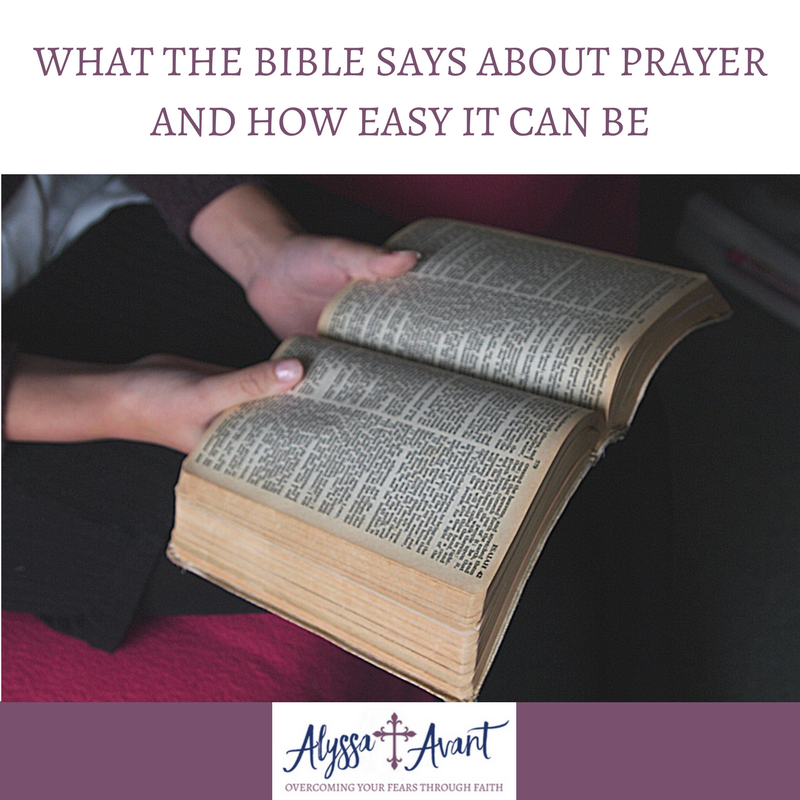Prayer is not meant to be complicated. We as humans are the ones who complicate the process. We want to think we have to pray a certain way, sit a certain way or be in a certain place – not so. We can say anything to God, and we can pray with our eyes wide open, or our eyes closed, on our knees, or standing, in our room, or even outside under a tree. The possibilities of our communicating with God are endless. He tells us that we are to pray under any and every circumstance. The Bible tells us that we should pray daily. Let’s look at what the Bible says about prayer.

What the Bible Says About Prayer
Prayer journaling helps to strengthen your daily prayer time with God. There is something very powerful about writing down your thoughts and feelings. The entire book of Psalms is actually a collection of David’s and other writer’s prayers; it’s their feelings in written form, one of which says,
“In the morning, O Lord, you hear my voice, in the morning I lay my requests before you and wait in expectation.” Psalm 5:3 (NIV)
God wants us to come before Him in prayer. He then honors us and begins to reveal His plans for our lives. Prayer is the lifeline to God and to those plans.
Keeping a prayer journal helps you to keep up with your thoughts, feelings, and concerns; writing these things down helps to confirm them and to begin to see God working to answer your prayers. It serves as a record that you can later review, and rejoice in the many times God answered your prayers. It will help to strengthen your faith and give you an effective testimony to be a witness for Christ to others.
What is Prayer?
Prayer is a form of communication with God. It can take many forms, including spoken or written words, songs, or even silence. The act of prayer is a way of expressing our thoughts, feelings, and desires to God. When we pray, we open ourselves up to the presence of God and invite His guidance and wisdom into our lives.
Why is Prayer Important?
Prayer is important for many reasons. It helps us to deepen our faith and cultivate a closer relationship with God. Through prayer, we can express our gratitude for the blessings in our lives and seek guidance during difficult times. Prayer also provides a sense of comfort and peace, as we know that we are not alone in our struggles.
Prayer can also have a positive impact on our mental health. Studies have shown that prayer can reduce stress and anxiety, and promote feelings of well-being and contentment. In addition, prayer can improve our relationships with others, as it encourages us to be more compassionate and forgiving.
How to Pray
Prayer can take many forms, and there is no right or wrong way to pray. However, there are some general guidelines that can help to make your prayer more meaningful and effective.
- Find a quiet space: Choose a quiet and peaceful place where you can pray without distraction. This could be a room in your house, a park, or a church.
- Focus your mind: Take a few deep breaths and clear your mind of distractions. Focus your attention on God and your intention for your prayer.
- Express gratitude: Begin your prayer by expressing your gratitude for the blessings in your life. This can help to shift your focus from what you don’t have to what you do have.
- Make your request: State your request clearly and honestly. Be specific about what you need and how you would like God to help you.
- Close with gratitude: End your prayer by expressing your gratitude once again. Thank God for His love and for listening to your prayer.

